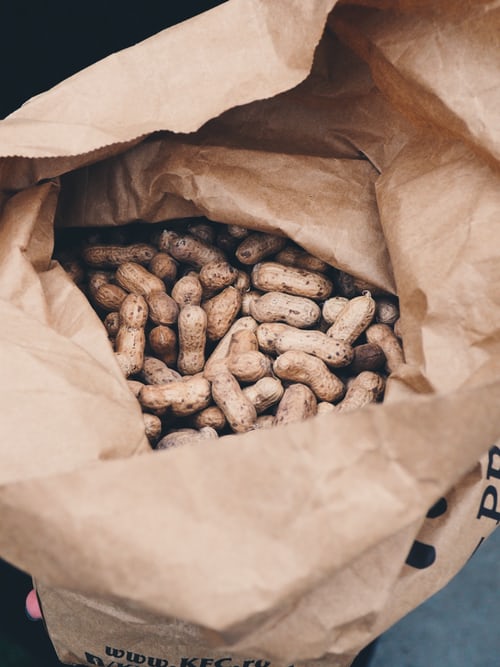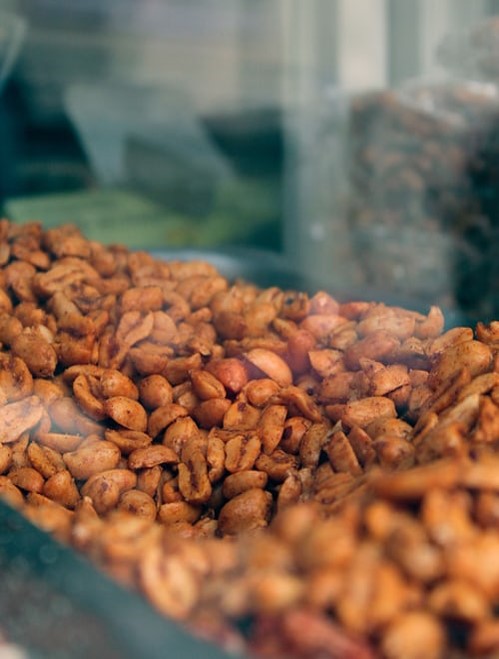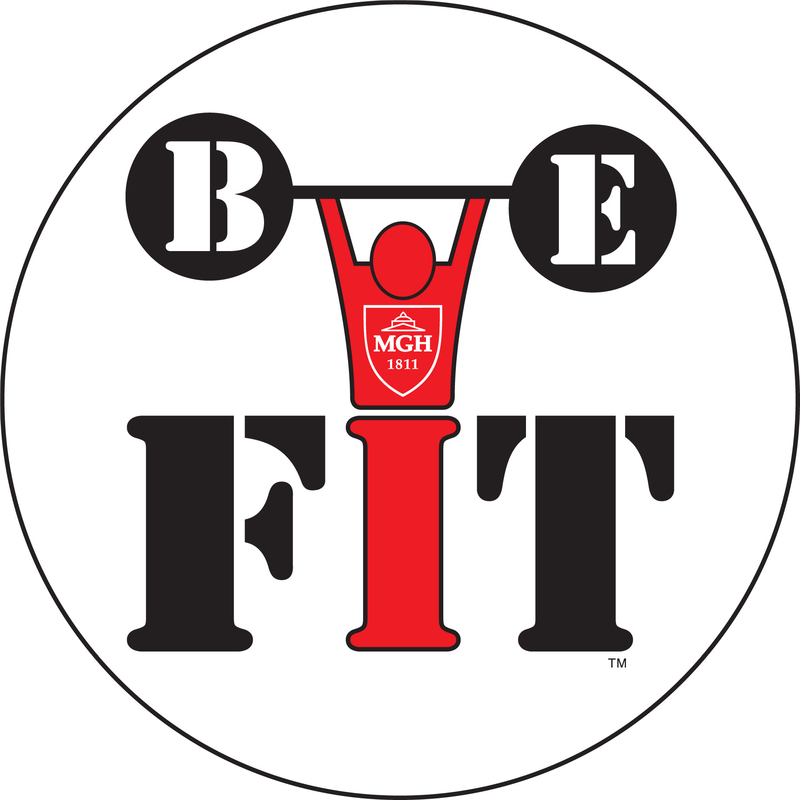|
The humble peanut often takes a backseat to trendier nuts. However, peanuts also offer healthy fats, protein, vitamins, and minerals, typically at a lesser cost. In fact, per serving peanuts contain more protein than any other nut.
Eating nuts – including peanuts – has been linked to a reduced risk of death from heart disease. Opt for a small handful of nuts for a snack. Instead of deli meat, try one or two tablespoons of nut butter in a sandwich. (Bored with plain old peanut butter? Try this.) Also, save those skins. Some studies have found preserving the peanut skin (found on in-shell and Spanish peanuts) can almost double the antioxidant concentration. Try this recipe. But what about aflatoxin? Yes, peanuts – like most nuts – are susceptible to this toxin. However, outbreaks seldom occur in the U.S. thanks to mandatory testing. Keep all nut products in the fridge to extend their shelf life. References: Aflatoxin Program. United States Department of Agriculture Agricultural Marketing Service. Accessed May 2019. Arya SS, Salve AR, Chauhan S. Peanuts as a Functional Food: a Review. J Food Sci Technol. 2016;53(1):31-41. Go Nuts (But Just a Little!). American Heart Association; 2015. Accessed April 2019. 'Going Nuts' May Help Heart Health. American Heart Association; 2015. Accessed May 2019. Kumar P, Mahato DK, Kamle M, Mohanta TK, Kang SG. Aflatoxins: a Global Concern for Food Safety, Human Health and Their Management. Front Microbiol. 2016;7:1-9. Sotos-Prieto M, et al. Association of Changes in Diet Quality with Total and Cause-Specific Mortality. N Engl J Med. 2017; 377:143-153. Zheng W, Shu XO. Prospective Evaluation of the Association of Nut/Peanut Consumption with Total and Cause-specific Mortality. JAMA Intern Med. 2015;175(5):755-766.
0 Comments
Leave a Reply. |
TOPICS
All
Archives
December 2023
|



 RSS Feed
RSS Feed